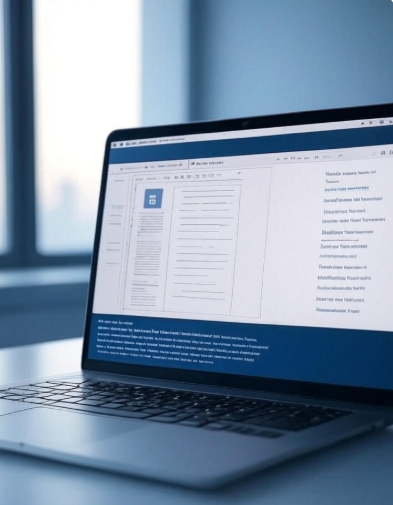The AI arms race has reached fever pitch, and Mark Zuckerberg is going all-in. But despite throwing around nine-figure compensation packages and personally WhatsApping hundreds of top researchers, Meta’s aggressive recruiting strategy is hitting some serious roadblocks. Here’s why the Facebook founder’s quest to build an AI “dream team” is proving harder than expected.
Zuckerberg’s Personal Mission
Picture this: Mark Zuckerberg sitting in his Lake Tahoe home, frantically messaging AI researchers on WhatsApp through his aptly named “Recruiting Party 🎉” chat group. It sounds almost surreal, but this is exactly what’s been happening as Meta’s CEO takes a hands-on approach to recruiting top AI talent.
Mark Zuckerberg, frustrated with Meta Platforms Inc.’s shortfalls in AI, is assembling a team of experts to achieve artificial general intelligence, recruiting from a brain trust of AI researchers and engineers who’ve met with him in recent weeks at his homes in Lake Tahoe and Palo Alto.
The billionaire tech mogul isn’t just throwing money at the problem – he’s literally rearranging Meta’s offices so new AI hires sit closer to him. This level of personal involvement shows just how seriously Zuckerberg takes Meta’s position in the AI race, especially as competitors like OpenAI and Google continue to make headlines with their breakthroughs.
The Numbers Game: When Money Talks
Let’s talk about the elephant in the room – the money. Meta isn’t just offering competitive salaries; they’re essentially rewriting the rules of tech compensation. Meta has offered compensation packages between seven and nine figures to AI researchers from top competitors, some of whom have accepted.
To put this in perspective, we’re talking about salaries that rival professional athletes. A nine-figure package means some AI researchers are being offered over $100 million. That’s not just competitive – that’s astronomical.
The strategy has produced some wins. Zuckerberg recently secured Scale AI’s CEO Alexandr Wang with a massive $14.3 billion investment, essentially making the 28-year-old one of tech’s most expensive hires ever. But for every success story, there are several high-profile misses.
The OpenAI Rivalry Gets Personal
The competition between Meta and OpenAI has become particularly intense, with both companies actively trying to poach each other’s talent. OpenAI CEO Sam Altman said that Meta tried to poach its employees with nine-figure offers, but failed to recruit OpenAI’s best people.
Altman didn’t mince words when discussing Meta’s recruitment efforts, revealing that while Meta had sought to hire “a lot of people” from OpenAI, “so far none of our best people have decided to take them up on that.”
This public back-and-forth highlights the personal nature of the AI talent war. It’s not just about companies competing – it’s about individual leaders trying to outmaneuver each other for the brightest minds in artificial intelligence.
Why the Big Bucks Aren’t Always Enough
Despite the massive financial incentives, Meta’s recruiting efforts are facing unexpected resistance. The reasons go beyond simple loyalty or company culture – they touch on fundamental concerns about Meta’s track record and future prospects.
One significant issue is trust. One AI researcher told me that he had heard about Zuckerberg’s high-stakes offers, but that people don’t trust Meta after the “weedwacker” layoffs. The reference to “weedwacker” layoffs points to Meta’s recent cost-cutting measures, where approximately 3,600 employees were laid off – roughly 5% of the company’s workforce.
For top AI talent, job security and long-term stability matter just as much as immediate compensation. If you’re a world-class researcher, why risk joining a company that might cut your division if the AI bet doesn’t pay off quickly enough?
The Perception Problem
Meta faces another challenge that money alone can’t fix: its reputation in the AI space. Meta’s “laggard history in generative AI has made some recruits hesitant.” This perception issue is particularly damaging when trying to recruit from companies like OpenAI, which are seen as AI innovators and industry leaders.
The company’s previous focus on the metaverse, which many viewed as a costly distraction, hasn’t helped its credibility in the AI community. Researchers want to work on cutting-edge projects that will define the future of artificial intelligence, not join what might be seen as a follower rather than a leader in the space.
The Superintelligence Gambit
Zuckerberg’s latest move involves assembling a specialized team focused on achieving “superintelligence” – AI systems that surpass human capabilities across all domains. Meta CEO Mark Zuckerberg is on a mission for his company to be the first to reach so-called artificial superintelligence — generally considered to mean AI that’s better than all humans at all knowledge work.
This ambitious goal represents both an opportunity and a risk. On one hand, it positions Meta as thinking big and aiming for transformative breakthroughs. On the other hand, it sets incredibly high expectations that might be impossible to meet, potentially leading to disappointment and talent attrition if progress doesn’t match the hype.
The Social Dynamics of Tech Recruiting
What’s fascinating about Meta’s recruiting struggles is how they highlight the social dynamics of Silicon Valley’s tech ecosystem. Money, while important, isn’t the only factor that top talent considers. Researchers want to work with other brilliant minds, on projects that excite them, at companies they respect.
The personal nature of Zuckerberg’s recruiting efforts – hosting dinners at his homes, creating WhatsApp groups, personally reaching out to researchers – shows an understanding that relationships matter in this business. But it also reveals a certain desperation that might actually work against Meta’s interests.
Some Wins, But Not the Big Fish
To be fair, Meta’s strategy isn’t a complete failure. Meta’s recruiting blitz claims three OpenAI researchers shows that the company is making some progress. However, the bigger prizes have proven elusive. Bigger game has eluded the Meta CEO, says the WSJ, including OpenAI co-founders Ilya Sutskever and John Schulman, both of whom have gone on to co-found newer startups.
This pattern – landing solid contributors but missing the superstars – suggests that Meta’s approach might need refinement. The company might be better served focusing on building a strong, cohesive team culture rather than just collecting individual talent.
The Sustainability Question
One of the biggest questions surrounding Meta’s AI spending spree is sustainability. AI salaries and data-center costs won’t be sustainable without the ultimate payoff being unimaginably large. The current level of investment assumes that AI will generate massive returns, but what happens if those returns are slower to materialize than expected?
This uncertainty might actually be contributing to recruitment challenges. Top researchers might be hesitant to join a company that’s making unsustainable bets, especially if they’ve seen how quickly priorities can shift in the tech industry.
Lessons for the Tech Industry
Meta’s recruiting struggles offer valuable lessons for the broader tech industry. First, money alone isn’t enough to win the talent war – company culture, mission alignment, and long-term stability all matter. Second, public perception and industry reputation play crucial roles in attracting top talent. Third, the personal approach to recruiting, while important, needs to be balanced with professional credibility.
The Road Ahead
As the AI arms race continues to intensify, Meta’s approach to talent acquisition will likely evolve. The company needs to prove that it’s not just throwing money at the problem but building something genuinely innovative and sustainable. This means demonstrating concrete progress in AI development, creating a compelling company culture, and showing that its massive investments are paying off with breakthrough technologies.
For Zuckerberg personally, the challenge is balancing his hands-on approach with the need to let his company’s work speak for itself. While personal recruiting efforts show commitment, ultimately it’s Meta’s AI products and research breakthroughs that will attract the best talent.
Insights
Meta’s $100 million recruiting spree represents one of the most aggressive talent acquisition strategies in tech history. While the company has secured some notable wins, the mixed results highlight the complexity of the modern AI talent market. Money talks, but it’s not the only voice in the conversation.
The real test for Meta won’t be whether it can outbid competitors for individual researchers, but whether it can build a compelling AI organization that naturally attracts and retains top talent. In the fast-moving world of artificial intelligence, that might be the most valuable investment of all.
As this story continues to unfold, one thing is clear: the battle for AI supremacy is being fought not just in code and algorithms, but in conference rooms, WhatsApp chats, and dinner parties in Silicon Valley’s most exclusive neighborhoods. For now, Mark Zuckerberg is betting everything on his ability to personally charm the world’s brightest AI minds into joining his vision for the future. Whether that strategy ultimately succeeds may determine not just Meta’s future, but the entire trajectory of artificial intelligence development.



